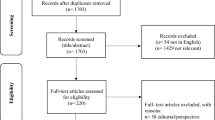Abstract
The objective of this article is to investigate ethical aspects of technology through the moral term “paternalism”. The field of investigation is medicine. The reason for this is twofold. Firstly, “paternalism” has gained moral relevance through modern medicine, where physicians have been accused of behaving paternalistic and threatening patients’ autonomy. Secondly, medicine is a brilliant area to scrutinise the evaluative aspects of technology. It is argued that paternalism is a morally relevant term for the ethics of technology, but that its traditional conception is not adequate to address the challenges of modern technology. A modification towards a “technological paternalism” is necessary. That is, “technological paternalism” is a fruitful term in the ethics of technology. Moreover, it is suited to point out the deficiencies of the traditional concept of paternalism and to reform and vitalise the conception of paternalism in ethics in order to handle the challenges of technology.
Similar content being viewed by others
References
Childress, J.F. (1982) Who should decide? Paternalism in health care. Oxford University Press, New York.
Hofmann, B. (2001) The Technological Invention of Disease. J Med Ethics: Medical Humanities 27: 10–19.
Toulmin S (1986). How Medicine Saved the Life of Ethics. In: DeMarco, Fox RM eds., New Directions in Ethics: The Challenge of Applied Ethics, Routledge and Keagan Paul, New York: 265–81.
Nordenfelt, L. (1991) Hälsa och värde. [Health and worth], Thales, Stockholm: 17.
Wolf, S., Berle, B.B. (1981) The Technological Imperative in Medicine, Plenum Press, London and New York.
Emanuel, E.J., Emanuel, L.L. (1992) Four models of the physician-patient relationship, JAMA 267 (16): 2224.
Cassell EJ (1991). The nature of suffering and the goals of medicine, Oxford University Press, New York: p. 92.
Falkum, E., Førde, R. (2001) Paternalism, patient autonomy, and moral deliberation in the physician-patient relationship. Attitudes among Norwegian physicians. Soc Sci Med 52(2): 239–48.
Reiser, S.J. (1978) Medicine and the Reign of Technology. Cambridge University Press, New York.
Fischer, E.S., Welch, H.G. (1999) Avoiding the Unintended Consequences of Growth in Medical Care. JAMA 281: 446–53.
Davidson, S.N. (1995) Technological Cancer: Its Causes and Treatment. Healthcare Forum J 38: 52–58.
Jennett, B. (1994) Medical Technology, Social and Health Care Issues, in Gillon, R. (ed.). Principles of Health Care Ethics. John Wiley & Sons, New York: 861–872.
Helman, C.G. (1985) Disease and pseudo-disease: A case history of pseudo-angina, in: Hahn RA, Gines AD (eds.) Physicians of Western medicine. Anthropological Approaches to Theory and Practice. D.Reidel Publishing Company, Dortrecht.
Dworkin, G. (1992) Paternalism. Encyclopaedia of Ethics. Garland, London: 940.
Beauchamp, T.L. (1995) Paternalism, in: Reich, W.T. Encyclopaedia of Bioethics. Simon & Schuster, London: 1914.
Kant, I. (1974) [1793] On the Old Saw: That May Be Right in Theory But It Won’t Work in Practice. University of Pennsylvania Press, Philadelphia.
Mill, J.S. (1978) [1859] On liberty. Hackett, Indianapolis, Ind.
Feinberg, J. (1986) Harm to self. Oxford University Press, Oxford.
Feinberg, J. (1971) Legal Paternalism. Canadian Journal of Philosophy 1: 113.
Häyry, H. (1998) Paternalism. Encyclopedia of Applied Ethics. Academic Press, New York: Volume 3: 453.
Häyry, H. (1991) The Limits of Medical Paternalism. Routledge, New York.
Ellul J. (1964) The Technological Society. Alfred A. Knopf, New York.
Winner, L. (1977) Autonomous Technology. MIT Press, Cambridge Ma.
Cassell EJ (1993): The Sourcer’s Broom. Medicine’s Rampant Technology. Hastings Center Report 23; (6): 32–39.
Hofmann, B (2002). The myth of technology in health care. Science and Engineering Ethics 8(1): 17–29.
Author information
Authors and Affiliations
Corresponding author
Rights and permissions
About this article
Cite this article
Hofmann, B. Technological paternalism: On how medicine has reformed ethics and how technology can refine moral theory. SCI ENG ETHICS 9, 343–352 (2003). https://doi.org/10.1007/s11948-003-0031-z
Received:
Accepted:
Issue Date:
DOI: https://doi.org/10.1007/s11948-003-0031-z




